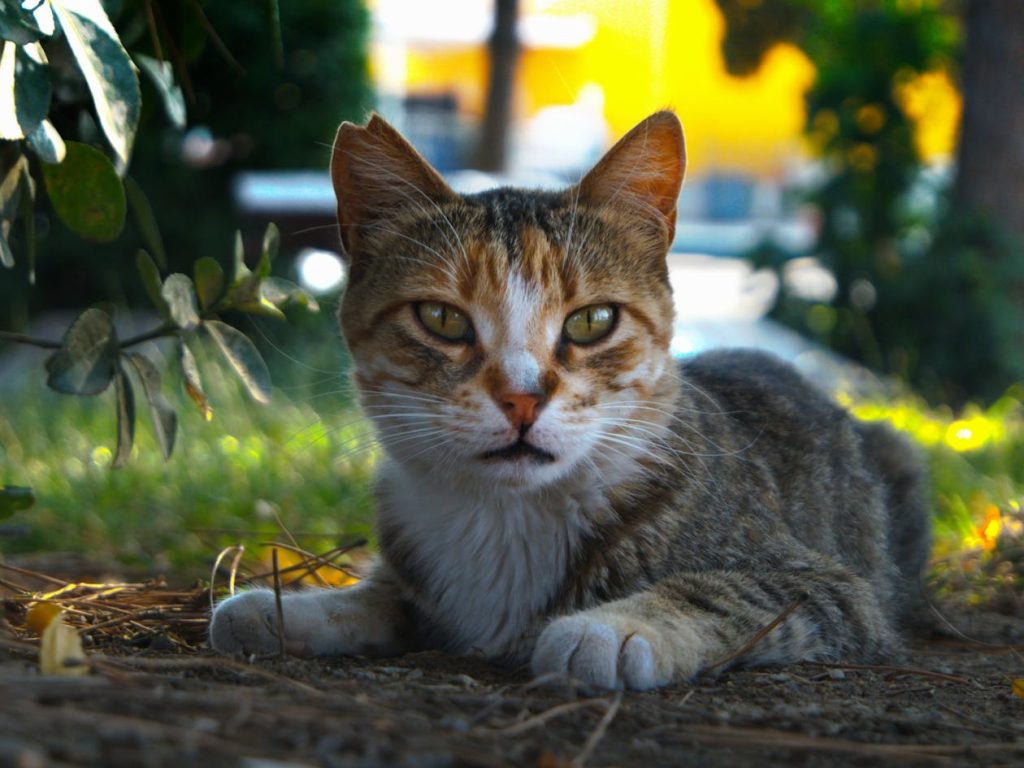Your cart is currently empty!
Spanish Pets Win Family Member Status as Courts Ditch Property Classification

Something unusual happened in a Madrid courtroom when a couple asked a judge to settle their breakup. No children were involved. No shared real estate needed to be divided. Instead, lawyers presented veterinary bills, adoption papers, and photographs as evidence. At stake was custody of Panda, a border collie who had lived with both partners for more than a year.
Spanish courts had treated pets like furniture or bank accounts for decades. Whoever could prove ownership won. But Panda’s case changed everything. In October 2021, a judge handed down a ruling that marked a turning point in how Spain’s legal system views animals. Now, months after that decision, Spain’s Congress has made that shift official for the entire country.
Law 17/2021 took effect in January 2022, removing animals from the same legal category as televisions and coffee makers. Under Spain’s newly amended Civil Code, pets are now classified as “sentient beings” with protections that acknowledge their capacity to feel and form bonds with humans. Courts must now consider an animal’s well-being when couples separate, creditors can’t seize companion animals to cover debts, and judges factor in whether someone mistreated a pet when deciding child custody cases.
Animal rights advocates see the change as a moral victory in a country where 200,000 animals are abandoned each year. Critics call it nonsense that elevates animals above their proper place. Either way, Spain joins a growing list of nations rethinking how the law treats creatures that millions of people consider family members.
When Love Isn’t Enough to Keep Your Dog

Panda’s owners had been together for 20 months when their relationship ended. Both wanted to keep their border collie. Under old legal standards, whoever’s name appeared on adoption papers or purchase receipts would have walked away with the dog. But Lola García, the lawyer representing the woman in the case, took a different approach.
García built her argument around the 1987 European Convention for the Protection of Pet Animals, which Spain ratified in 2017. Instead of treating the case like a dispute over shared property, she presented both parties as “co-responsible” and “co-caretakers” of an animal whose welfare mattered more than formal ownership papers.
Evidence included veterinary bills paid by both partners, an adoption contract with both names, and photos showing the couple caring for Panda together. García told reporters that the judge needed to recognize something that property law couldn’t capture: “There’s an emotional bond that the justice system needs to recognize.”
The judge’s ruling granted joint custody. Each partner now spends one month at a time with Panda while sharing veterinary costs and other expenses. Arrangements mirror how courts handle custody of human children after separation.
Panda’s case wasn’t entirely without precedent. In 2019, a Valladolid judge granted a couple joint custody of Cachas, a West Highland terrier. Each person got six months per year with the dog. But that earlier ruling relied on property law arguments because Spain’s Civil Code offered no other framework. Cachas couldn’t be “split in half,” so the judge improvised.
García represented a party in that case, too. She recognized that the legal tools available at the time fell short. Property law forced lawyers to argue about ownership when the real issue centered on relationships and care. Panda’s case allowed her to use international convention language to reframe the entire discussion.
From Object to Family Member

Animals occupied an odd position in Spanish law before 2022. Criminal codes already recognized them as beings capable of suffering. Regional administrative rules acknowledged their sentience. European Union law treated them as more than things. Yet Spain’s Civil Code, which governs property, family matters, and obligations, still classifies animals as objects.
Lawyers faced contradictions. Courts could punish someone for animal cruelty, but had no civil law framework for addressing pet custody in divorce cases. Judges improvised, but without clear legal language, outcomes varied.
María González Lacabex, from legal organization INTERcids, which focuses on animal protection, explained the problem. Before Law 17/2021, courts lacked guidance on how to handle pets when couples separated. Judges could only apply property rules designed for dividing furniture and cars.
Law 17/2021 resolved those contradictions. Animals can no longer be seized, abandoned, mistreated, or separated from owners without courts considering their health and circumstances. Changes affected not just the Civil Code but also the Mortgage Law and the Civil Procedure Law. Protections apply broadly to domestic and wild animals.
Professor Nuria Máximo, who directs the Professorship of Animals and Society at Rey Juan Carlos University, sees the legal shift reflecting broader social change. Society’s vision of how animals should be treated evolved faster than laws keeping pace. Law 17/2021 caught the legal system up with public attitudes.
What Changed for Pet Owners

Practical implications extend beyond custody battles. If someone finds a lost animal, they must return it to its owner or caretaker unless signs suggest abuse or neglect. Finders can claim reimbursement for treatment and care expenses.
Pets can appear in wills now. If owners don’t specify who should inherit an animal, whoever claims it first gets custody. When multiple heirs want the same pet and can’t agree, judges decide based on the animal’s welfare. If no heir steps forward, authorities can place the animal with a third party.
Farm animals gained protection, too. Livestock from agricultural, industrial, or recreational operations can no longer be included in mortgages or seized to satisfy debts. Rules separate working animals from companion pets while extending some protections to both categories.
Domestic violence cases saw perhaps the most striking change. Judges can now deny joint child custody to someone who mistreated or threatened to harm animals as a way to control or victimize their partner or children. The law recognizes pet abuse as a form of domestic violence that predicts danger to humans.
Guillermo Díaz, a lawmaker from the center-right party Ciudadanos, defended the changes by pointing to human responsibility. “We are the only species that recognizes the suffering of others and as such we have an obligation to prevent that suffering,” he said during congressional debates.
Díaz noted that before the law passed, courts treated animals no differently than televisions when couples divorced. Legal language gave judges no tools to consider whether an animal had bonded with one person more than another or whose home would better serve the pet’s needs.
Long Road to Approval
Getting Law 17/2021 passed took years. First proposed in 2017, the measure stalled when Spain held two general elections in 2019. Parliament couldn’t move forward on legislation while political chaos consumed government attention.
April 2021 brought the initiative back before Congress. All parties except far-right Vox supported it. Spain’s Senate approved the law in September with some modifications. Congress gave final approval in December, clearing the way for implementation in January 2022.
The Conservative Popular Party largely backed the legislation but issued warnings. PP lawmakers told the coalition government, led by the Socialist Party and junior partner Unidas Podemos, not to expect support for additional animal protections. The warning referred specifically to Social Rights Ministry plans for a separate animal welfare law with stricter measures against trafficking and abuse.
Teresa Aguada, a PP lawmaker, urged Socialists not to “cede to the extremist pressure of your partners to attack our traditions, culture and rural world.” Her comments reflected tensions over how far animal protection should extend, especially regarding rural practices like hunting and bullfighting.
Most parties celebrated the passage. Juantxo López de Uralde from Unidas Podemos called it “a moral victory in a country where 200,000 animals are abandoned each year.” Sonia Guaita from PSOE noted that similar legislation exists throughout Europe, adding that people violent toward animals often prove violent toward humans.
Only Vox opposed the measure. Ángel López Maraver, a Vox lawmaker and former president of the Spanish Hunting Federation, called the law “insanity, nonsense, stupidity. It humanizes animals and dehumanizes man.”
Spain Joins Global Trend

Spain’s move follows similar actions across Europe and beyond. Austria changed its laws in 1986. Germany followed in 1990. Switzerland acted in 2003. Catalonia, an autonomous Spanish region, passed its own version in 2006. Belgium joined in 2009, France in 2015, and Portugal in 2017. Countries outside Europe, including Canada and New Zealand, adopted comparable measures.
The United States hasn’t passed federal legislation, but several states have moved forward. California, Illinois, and Alaska enacted laws recognizing pets as more than property. New York passed a measure in October 2021 instructing judges to determine what serves a pet’s best interest during custody battles rather than simply awarding the animal to whoever holds title.
Assemblywoman Deborah Glick, a Manhattan Democrat who sponsored New York’s law, explained the shift in thinking. “I think in the past pets were simply property,” she told reporters. “But they are sentient beings, and on that basis they deserve some thoughtful consideration, and that is what the intention is.”
New York’s approach stops short of calling animals “sentient beings” in statute language but achieves similar practical results. Judges must treat pets more like children than like record collections or beach houses when couples separate.
Why Now?

Family structures continue changing. More couples choose not to marry. People delay having children or decide against parenthood while still wanting to nurture relationships with pets. Animals fill emotional needs once met primarily by human family members.
García, who represented the plaintiff in Panda’s custody case, expects such rulings to become more common as traditional family units evolve. Unmarried couples who break up need legal frameworks for resolving pet custody just as married couples do. Without clear laws, disputes drag on through courts while animals live in limbo.
Animal protection associations like the Observatory for Animal Justice and Defense collected thousands of signatures supporting Law 17/2021. Public pressure reflected widespread belief that existing laws no longer matched how people actually live with and care for animals.
Economic factors play a role, too. Pet ownership surged during recent years. Spaniards spend billions annually on pet food, veterinary care, grooming, and accessories. Industries built around pet care demonstrate how central animals have become to daily life.
What Comes Next
Law 17/2021 addresses civil law issues, but Spain’s government plans additional animal welfare legislation. Social Rights Ministry, headed by Ione Belarra from Unidas Podemos, prepares a draft law targeting animal trafficking and abuse with stricter enforcement mechanisms.
That forthcoming legislation faces stronger opposition. Rural communities worry new rules will restrict traditional practices. Hunting organizations fear regulations that could limit their activities. Agricultural groups question whether measures designed for companion animals might eventually apply to livestock in ways that complicate farming.
Debate over animal rights often divides along urban and rural lines. City dwellers tend to support stronger protections. Rural residents see their livelihoods and cultural traditions threatened by regulations they consider disconnected from agricultural realities.
Legal changes also raise practical questions. How will courts handle increased caseloads as more couples seek pet custody arrangements? Will judges need specialized training to assess animal welfare? Can the legal system absorb new responsibilities without additional resources?
Despite uncertainties, Law 17/2021 represents a clear direction. Spain chose to align its civil law with existing criminal codes and international conventions. Animals matter in ways property law could never address. Whether that principle extends further depends on political will and public support for additional reforms.
For now, Panda and Cachas live under legal frameworks that acknowledge their emotional lives. Judges can consider their well-being when making decisions. Future animals may benefit from even broader protections as Spain continues rethinking humanity’s obligations to other species.
